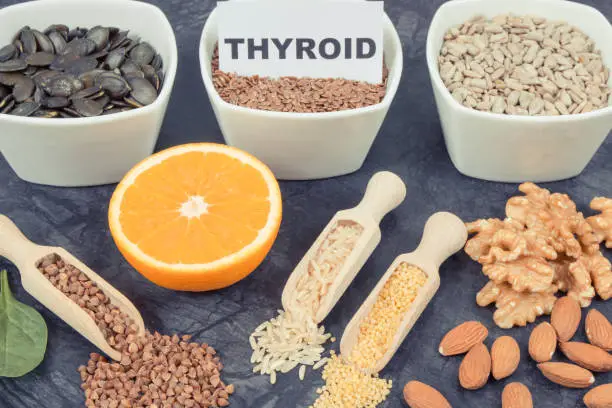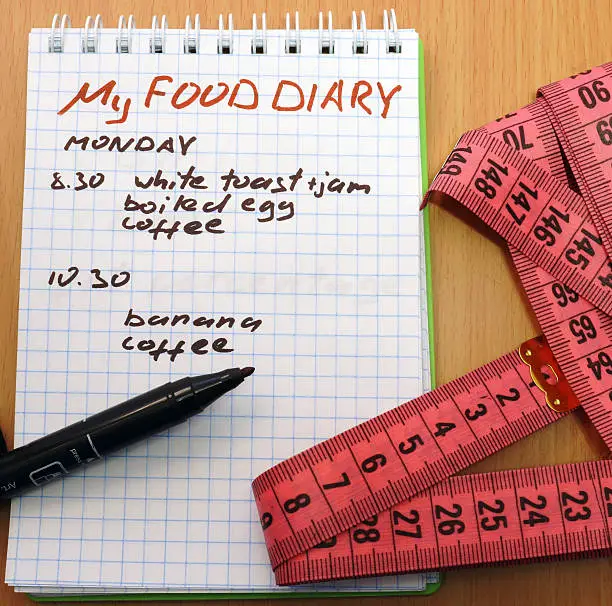Weight gain is a common symptom of hypothyroidism, but there are ways to control it. Hypothyroidism is when your thyroid gland does not produce enough hormones. This can cause symptoms such as weight gain and fatigue. Although these symptoms may seem like no big deal initially, they can lead to other health problems if left untreated.
If you’re struggling to control weight gain with hypothyroidism, you’re not alone. Many people with this condition find it difficult to lose weight, even with medication and a healthy lifestyle.
However, there are some things you can do to help control your weight gain. In this blog post, we’ll share some tips and strategies for managing weight with hypothyroidism.
What is Hypothyroidism?

Hypothyroidism is when the thyroid gland does not produce enough hormones. The thyroid is located in the neck and produces two hormones, triiodothyronine (T3) and tetraiodothyronine (T4).
Hypothyroidism occurs when your body does not produce enough of these hormones. This means that your metabolism slows down, causing weight gain and other symptoms like fatigue, hair loss, constipation, dry skin, and brittle nails.
In addition to weight gain caused by hypothyroidism, millions of people worldwide have struggled with their weight due to low energy levels caused by this condition.
Symptoms of Hypothyroidism
The symptoms of hypothyroidism are as follows:
- Fatigue
- Weight gain
- Constipation
- Dry skin and hair, with dry and brittle nails
- Hair loss on the scalp, outer edge of eyebrows, and eyelashes
- Muscle aches and pains (especially in the upper arms)
- Cold intolerance – feels cold even when others don’t feel it’s that cold outside.
Why Weight Gain With Hypothyroidism
The thyroid gland is a small butterfly-shaped organ located in the throat. It produces thyroid hormone, which regulates your body temperature, metabolism, heart rate, and many other functions.
When a person has an underactive thyroid (hypothyroidism), their metabolism will slow down because they’re not getting enough of this hormone from the gland. As you may know from personal experience, losing weight cannot be easy when your metabolism slows down, even if you are eating healthily and exercising regularly. This makes sense; if your body doesn’t have enough energy, it won’t want to move around as much!
The thyroid hormone is essential for burning fat and building muscle. One of the best ways to combat weight gain in hypothyroidism is by ensuring your levels are within normal range through medication or supplementation.
How To Control Weight Gain With Hypothyroidism of Thyroid!!!
#1 Control and Manage Your Sugar Intake

You should also avoid sugar and refined carbohydrates. Carbohydrates are one of the main sources of energy in the body, so if you eat too many of them, your blood sugar levels will rise rapidly. This causes an increase in insulin production and leads to weight gain.
The best way to keep weight is by eating more protein and fiber, along with plenty of fruits, vegetables, whole grains, nuts, and seeds. These foods help stabilize blood sugar levels, so you don’t experience spikes after eating them. These foods also help keep you fuller for longer after meals, leading to fewer cravings later on!
Also, try not to eat too many processed foods since they often have high amounts of sugar and sodium (salt). It may seem convenient, but it won’t do much good for your health in the long run!
Finally, ensuring that you drink plenty of water daily helps keep everything working properly inside our bodies!
#2 Avoid Stress and Depression
Stress and depression are very common causes of weight gain. Stress can make you crave food, making it difficult to lose weight. Depression is also a culprit, as it can lead you to eat less or skip meals altogether.
If you’re struggling with stress or depression, there are plenty of ways you can combat the problem. Try meditating, taking a walk around the block, and writing down your thoughts and feelings in a journal—there are many ways to relieve mental fatigue!
#3 Go for a Check-Up Regularly
In addition to the above, you should also go for regular check-ups. The key here is to ensure that your thyroid levels are checked regularly and in the normal range. This is important because if there is no indication of hypothyroidism or hyperthyroidism, it’s unlikely that you will gain weight.
If you are overweight, losing weight before a checkup is strongly recommended. Make sure that when given an appointment for a blood test at your annual health checkup or other routine physical examinations, you do not forget about them!
#4 Avoid Smoking and Alcohol
When you suffer from hypothyroidism, you must avoid smoking and alcohol. Smoking can cause hypothyroidism and interfere with the absorption of thyroid hormone. Alcohol is high in calories and can cause weight gain even when you do not eat it in excess.
#5 Exercise Daily For 30 Minutes
If you have hypothyroidism, one of the most important things you should do is exercise daily. Exercise has many benefits, such as helping to manage stress and depression, improving your mood, sleeping better, and maintaining a healthy weight. It can also help keep your weight from increasing because it increases your metabolism.
Exercise does not have to be hard or painful – make sure you are doing some physical activity for at least 30 minutes daily. If this seems impossible, start small with five minutes here and there until it becomes part of your routine (like brushing your teeth).
#6 Eat More Anti-Inflammatory Foods

Eating fruits and vegetables is a great way to keep inflammation at bay. Anti-inflammatory foods include:
- Leafy greens like spinach, kale, collard greens, and Swiss chard
- Tomatoes
- Berries such as cranberries, blueberries, strawberries, and raspberries
- Red bell peppers
Low-inflammatory foods include:
- Turkey breast or lean beef tenderloin (Skip the fried version). Use low-fat dressing on your salad instead of creamy dressings like ranch or blue cheese.
#7 Stick to Small, Frequent Meals
It will help if you eat smaller, frequent meals rather than large ones. This will help you feel full and stop the cravings for food.
- Eat protein with each meal.
- Eat fiber with each meal.
- Eat foods that are low in fat and high in water content, such as fruits and vegetables
#8 Keep a Food Diary

Keeping a food diary is a simple and effective way to track what you eat. This will help you spot problematic eating habits, such as overeating or emotional eating.
The best way to keep a food diary is by using an app on your smartphone or tablet. Most apps allow you to log foods by scanning the bar code with your phone’s camera, so it’s easy to add foods quickly without manually typing them in. Some apps also have other features that make tracking your weight loss journey easier, like calorie counters and reminders about when/how often you should weigh yourself every week.
One important thing not to do: don’t include everything! You don’t need details about every meal in your daily log—just enough for each day (like breakfast, lunch, dinner). And remember that snacks are just fine too! If certain ingredients trigger cravings for sweets or salty snacks, for example, then, by all means, write those down too, but otherwise, don’t worry about it too much since most people only eat three meals per day anyway and only have time during meal times anyway so writing anything else would waste precious minutes away from being productive elsewhere…
#9 Take Thyroid Medication as Directed
It would help if you were taking your medications as directed. If you forget to take your medication, take it as soon as you remember. If this happens often, consider setting the alarm on your phone or computer, so you don’t forget again!
Conclusion
Weight Gain In the Thyroid (Hypothyroidism) can be a serious problem. However, it is not impossible to control weight gain in the thyroid. You need to take a proper diet, exercise, vitamins, and other supplements to help you fight this condition.











